I'm sure you do: Republican governance is a man-made disaster that the public fails to learn from and must be reminded every so often by an unmitigated disaster that results from their short-sighted "government can't do anything right" policies. The most recent example came yesterday, when as Barbara noted, the Republican budget proposal
Of course there's never a good time for Republican proposals, unless of course you're rich or tend to receive no-bid reconstruction contracts.would make massive cuts the country’s ability to monitor and respond to disasters like the tsunami that struck Japan last night. That proposal was stopped in the Senate this week. But today, in an unfortunate bit of bad timing, House Appropriations Committee Chair Hal Rogers (R-KY) introduced a new continuing resolution to fund the government for the next three weeks, while implementing more than $6 billion in budget cuts — including more than $100 million from the agency responsible for handling tsunamis.
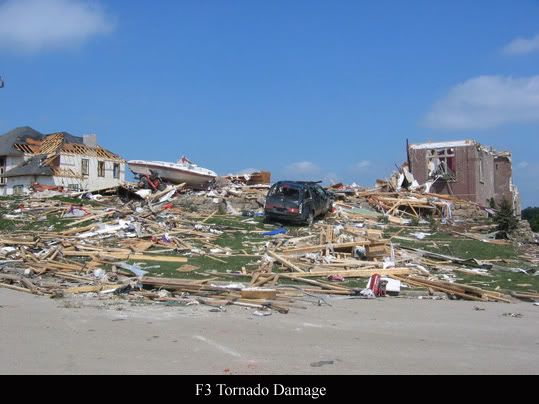 Despite the 4th most tornadoes in February on record, Republicans, in their superficial claim to cut the deficit, are proposing cutting $1.6 billion to the Federal Emergency Management Agency. Of course that's not enough looming damage for Republicans to partake in, they're also refusing to upgrade aging warning and detection systems:
Despite the 4th most tornadoes in February on record, Republicans, in their superficial claim to cut the deficit, are proposing cutting $1.6 billion to the Federal Emergency Management Agency. Of course that's not enough looming damage for Republicans to partake in, they're also refusing to upgrade aging warning and detection systems:
The GOP’s bill would tear $1.2 billion (21 percent) out of the president’s proposed budget for the National Oceanic and Atmospheric Administration, or NOAA.Bottom line: more accurate forecasting saves lives and money, but Republicans have never cared about lives and are never foresighted enough to modernize public infrastructure until after disaster hits. Remember those reports in 2006 by the Minnesota Department of Transportation which reported fatigue cracks and bending of girders that lifted the bridge that collapsed just a year later, killing 7? Unfortunately it always takes the political limelight that follows a disaster to change Republican governance:More than $700 million of the president’s proposed 2011 increase in NOAA funding would be tagged for overhauling our nation’s aging environmental satellite infrastructure. Satellites gather key data about our oceans and atmosphere, including cloud cover and density, miniscule changes in ocean surface elevation and temperatures, and wind and current trajectories. Such monitoring is integral to our weather and climate forecasting and it plays a key role in projections of strength and tracking of major storms and hurricanes—things most Americans feel are worth keeping an eye on.
In fact, NOAA has been making great strides in hurricane tracking. The average margin of error for predicting landfall three days in advance was 125 miles in 2009—half what it was 10 years prior. This data translates into a higher degree of confidence among the public in NOAA’s forecasts, which means individuals will be more likely to obey an evacuation order. Further, since evacuating each mile of shoreline costs approximately up to $1 million, greater forecasting accuracy translates to substantial savings.
When disaster strikes at sea, polar-orbiting satellites receive emergency distress beacons and relay positioning data to rescuers. This resulted in 295 lives saved in 2010 alone and the rescue of more than 6,500 fishermen, recreational boaters, and other maritime transportation workers since the program began in 1982.
The Republican response is always the same: how dare you hold us accountable for the consequences of our policies, no one could have ever foreseen [insert latest disaster] causing [insert latest consequence that could have been mitigated by different policies]. Remember when Mike Brown, the head of FEMA under George W. Bush, claimed that no one could have predicted the damage caused when the then-category-4-hurricane Katrina slammed into New Orleans, even though they had simulated such an event a year earlier? No, George W. Bush's decision point to fund Louisiana levee projects at 20% couldn't have had anything to do with the resulting damage caused by Katrina, right?In the past two years, Gov. Tim Pawlenty of Minnesota twice vetoed legislation to raise the state’s gas tax to pay for transportation needs.
Now, with at least five people dead in the collapse of the Interstate 35W bridge here, Mr. Pawlenty, a Republican, appears to have had a change of heart.
“He’s open to that,” Brian McClung, a spokesman for the governor, said Monday of a higher gas tax. “He believes we need to do everything we can to address this situation and the extraordinary costs.”
Even as the cause of the bridge disaster here remains under investigation, the collapse is changing a lot of minds about spending priorities. It has focused national attention on the crumbling condition of America’s roadways and bridges — and on the financial and political neglect they have received in Washington and many state capitals.
Republicans will cry "Who could have foreseen the impending disaster of cutting hurricane preparedness after one of the worst hurricane seasons in decades?" I don't know, perhaps the scientists the government funds to warn us of such events? The ones Republicans are hoping to cut funding for?The 2004 hurricane season was the worst in decades. In spite of that, the federal government came back this spring with the steepest reduction in hurricane- and flood-control funding for New Orleans in history. Because of the proposed cuts, the Corps office there imposed a hiring freeze. Officials said that money targeted for the SELA project -- $10.4 million, down from $36.5 million -- was not enough to start any new jobs. According to New Orleans CityBusiness this June 5:
The district has identified $35 million in projects to build and improve levees, floodwalls and pumping stations in St. Bernard, Orleans, Jefferson and St. Charles parishes. Those projects are included in a Corps line item called Lake Pontchartrain, where funding is scheduled to be cut from $5.7 million this year to $2.9 million in 2006. Naomi said it's enough to pay salaries but little else.
Nationally, reduced funding will mean upper air observations now made twice a day might be reduced to every other day, buoy and surface weather observations that provide data for warning systems could be temporarily or permanently discontinued and there could be delays in replacing satellites, according to the release."We're going to have less people doing the same amount of work and potentially we could have outages," Sharkey said, adding there could potentially be a decrease in accuracy of forecasts that local boaters and others rely on, as well as an effect on several types of warnings issued as a result of data collected by NOAA employees.
 But get ready to hear Republicans cry foul again because this February set the record for the most forest fires in a decade, and Republicans, of course, are proposing $50 million in cuts from the National Forest Service, including $6 million directly from programs that fight forest fires. So this summer when fires ravage the United States, causing millions upon millions of damage, remember that Republicans, in their desperate budget charade, tried to save us $6 million in cuts that would have reduced the damage of those fires. Of course, just last summer we were reminded of what happens when you leave Republicans in charge of energy regulation:
But get ready to hear Republicans cry foul again because this February set the record for the most forest fires in a decade, and Republicans, of course, are proposing $50 million in cuts from the National Forest Service, including $6 million directly from programs that fight forest fires. So this summer when fires ravage the United States, causing millions upon millions of damage, remember that Republicans, in their desperate budget charade, tried to save us $6 million in cuts that would have reduced the damage of those fires. Of course, just last summer we were reminded of what happens when you leave Republicans in charge of energy regulation:
That's Republican governance in a nutshell: save $500,000 now, pay many billions later after catastrophic damage that "never could have been foreseen". Except of course when it is foreseen, such as the re-eruption of Alaska's volcano Redoubt because scientists had been monitoring it for that very occasion. But to Republicans of course mock paying for that monitoring, after all it saves lives of people who aren't wealthy, and they're just not too into that:In addition, the bill weakened environmental protections for offshore drilling, making it easier to exclude a broad range of exploration and drilling activities from analysis under the National Environmental Policy Act. This has been cited as the reason that the Deepwater Horizon site was not subjected to a thorough environmental analysis.
Among the many questions is what role the task force may have played in a 2003 decision by the MMS not to require offshore rigs to install an acoustic shut-off switch, a remote-controlled backup system that seals off an underwater well even if the rig above is destroyed. Countries like Norway and Brazil require this precaution, and MMS considered doing the same. But oil companies complained that the $500,000 devices were too expensive and, they argued, ineffective. Ultimately, MMS made the switches optional. The Deepwater Horizon was not outfitted with such a device, which could have prevented the spill. Other concerns include a failure to implement new cementing policies or act on known concerns about key components on drilling rigs.
So get ready America, get ready to be reminded that when Republicans call for gutting FEMA's state programs by three quarters of a billion, it normally means disaster is right around the corner, disaster they'll never take responsibility for.Remember how, during his big prime-time speech last month, Lousiana's Republican governor Bobby Jindal, in addition to making stuff up about what he did during Hurricane Katrina, also found time to mock the Obama administration for "wasteful spending" in the stimulus bill, including "$140 million for something called 'volcano monitoring'"?
Why is Jindal's line looking even worse now? Because, as you've likely heard, Alaska's Mount Redoubt, 100 miles southwest of Anchorage, erupted last night. And a USGS geologist confirmed to TPMmuckraker that a portion of the stimulus spending for volcano monitoring that Jindal lampooned has been slated to go to USGS monitoring Redoubt.
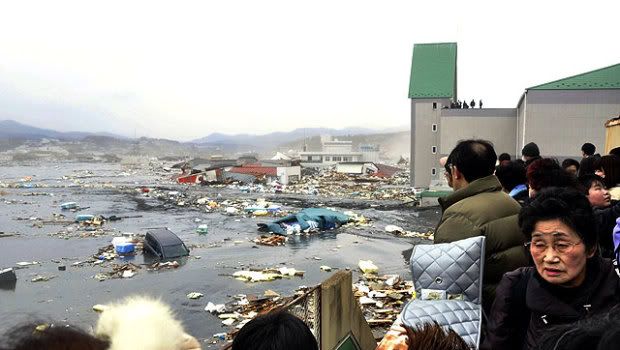 would make massive cuts the country’s ability to monitor and respond to disasters like the tsunami that struck Japan last night. That proposal was stopped in the Senate this week. But today, in an unfortunate bit of bad timing, House Appropriations Committee Chair Hal Rogers (R-KY) introduced a new continuing resolution to fund the government for the next three weeks, while implementing more than $6 billion in budget cuts — including more than $100 million from the agency responsible for handling tsunamis.
would make massive cuts the country’s ability to monitor and respond to disasters like the tsunami that struck Japan last night. That proposal was stopped in the Senate this week. But today, in an unfortunate bit of bad timing, House Appropriations Committee Chair Hal Rogers (R-KY) introduced a new continuing resolution to fund the government for the next three weeks, while implementing more than $6 billion in budget cuts — including more than $100 million from the agency responsible for handling tsunamis.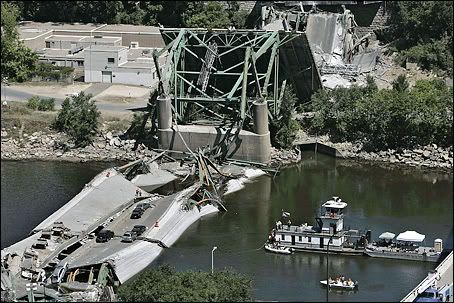 In the past two years, Gov. Tim Pawlenty of Minnesota twice vetoed legislation to raise the state’s gas tax to pay for transportation needs.
In the past two years, Gov. Tim Pawlenty of Minnesota twice vetoed legislation to raise the state’s gas tax to pay for transportation needs.
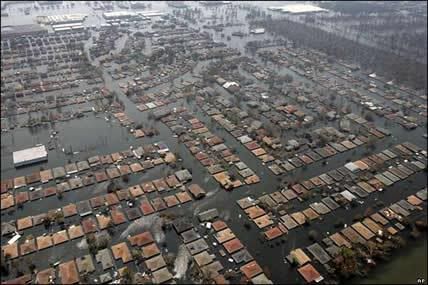 The 2004 hurricane season was the worst in decades. In spite of that, the federal government came back this spring with the steepest reduction in hurricane- and flood-control funding for New Orleans in history. Because of the proposed cuts, the Corps office there imposed a hiring freeze. Officials said that money targeted for the SELA project -- $10.4 million, down from $36.5 million -- was not enough to start any new jobs. According to New Orleans CityBusiness this June 5:
The 2004 hurricane season was the worst in decades. In spite of that, the federal government came back this spring with the steepest reduction in hurricane- and flood-control funding for New Orleans in history. Because of the proposed cuts, the Corps office there imposed a hiring freeze. Officials said that money targeted for the SELA project -- $10.4 million, down from $36.5 million -- was not enough to start any new jobs. According to New Orleans CityBusiness this June 5:
 In addition, the bill weakened environmental protections for offshore drilling, making it easier to exclude a broad range of exploration and drilling activities from analysis under the National Environmental Policy Act. This has been cited as the reason that the Deepwater Horizon site was not subjected to a thorough environmental analysis.
In addition, the bill weakened environmental protections for offshore drilling, making it easier to exclude a broad range of exploration and drilling activities from analysis under the National Environmental Policy Act. This has been cited as the reason that the Deepwater Horizon site was not subjected to a thorough environmental analysis.
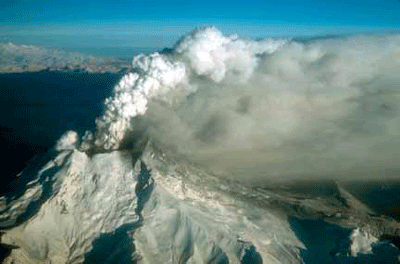 Remember how, during his big prime-time speech last month, Lousiana's Republican governor Bobby Jindal, in addition to making stuff up about what he did during Hurricane Katrina, also found time to mock the Obama administration for "wasteful spending" in the stimulus bill, including "$140 million for something called 'volcano monitoring'"?
Remember how, during his big prime-time speech last month, Lousiana's Republican governor Bobby Jindal, in addition to making stuff up about what he did during Hurricane Katrina, also found time to mock the Obama administration for "wasteful spending" in the stimulus bill, including "$140 million for something called 'volcano monitoring'"?